DCM - Dilated Cardiomyothpy some things you need to know
DCM in short what does it mean in the world of dog food
Dilated Cardiomyopathy (DCM)
With so much news an around DCM and what you feed your dogs lets have a look at what we know.
First of all there have been approx 560 cases in USA diagnosed since 2014. 7 cases were reported between 2014 and 2017 and was not until the the Food and Drug Administration(FDA) in the USA was made aware by a group of veterinary cardiologist in the North West there was some concerns based on the following two factors:
1) not known breeds were being diagnosed DCM
2) most had been eating grain-free diets prior to diagnosis
The FDA released its first advisory about this issue in July 2018, in order to alert pet owners and general-practice veterinarians of the possibility for DCM to develop in dogs, especially if they had been maintained on grain-free/legume-rich diets for any significant period of time. The agency warned interested parties to be on the lookout for the symptoms of DCM: loss of appetite, pale gums, increased heart rate, coughing, difficulty breathing, periods of weakness, and fainting.
This alerted veterinary practices to report further cases of DCM. The question then needs to be answered, if this was not alerted would the natural trend have been as high as what it has been? Although ratios per captata are significantly low in the USA. I believe the alert has potentially led to better diagnosis of the issue that may have been misinterpreted for other symptoms. Because the accuracy of the diagnosis had been correct led to closer reporting on DCM which has increased numbers reported.
An assumption has been made that people who feed their pet GF are overall in a better financial position to pay the extra for Grain Free, but are also in a better position to pay for appropriate diagnostics treatments. This will be an interesting assumption to be worked through and see if there is any correlations.
The next question is around the all almighty diet - The FDA has not yet reached any conclusions about definitive links between the foods that the 560 dogs were being fed and their development of DCM. However, if, in an abundance of caution, an owner wanted to avoid products that share the traits of these foods, it’s possible to do so. The update includes enough information about the implicated foods that could help consumers select foods that do not share the traits of the implicated foods. Just keep in mind that causation is still unknown and that the FDA’s only conclusion so far is that “DCM in dogs is a complex scientific issue that may involve multiple factors.”
In short what does this mean?
Grain-free diets represented 91% of the products implicated in the reports; 93% contained peas and/or lentils. Potatoes and/or sweet potatoes were present in 42% of the products. These numbers are far more intriguing.
The inclusion of peas, lentils, chickpeas, and other legume seeds have reached some sort of critical mass in recent years with pet food manufacturers. Though they’ve been present in many pet foods for at least a decade, in recent years, the percentage of their representation in formulas has grown. We wouldn’t worry unduly about one of these ingredients appearing on an ingredients panel in a minor role – 6th or 7th or lower on the list, say. But if there is more than one of these ingredients on the list and/or one in one of the top five or so positions on the ingredients list, for now, we’d look for another product to feed our dogs.
1. No matter what your dog eats, if she has any signs of DCM – including decreased energy, cough, difficulty breathing, and episodes of collapse – you should make an appointment to see your veterinarian ASAP, preferably one who can refer you to a veterinary cardiologist.
2. For now, we would strongly recommend avoiding foods that use peas – including constituent parts of peas, such as pea starch, pea protein, and pea fiber, and especially multiple iterations of peas (such as green peas, yellow peas, pea protein, etc.) as major ingredients. If any one of these appears higher than the 6th or 7th ingredient on an ingredient list, for now, we’d switch to foods that do not display this trait.
Same goes for chickpeas (may be referred to as garbanzo beans), any other type of bean, and lentils.
We’d switch away from any foods containing more than one of these ingredients (peas, beans, or lentils).
3. As we have stated many times, we would feed grain-free foods ONLY to dogs with a demonstrated allergy to or intolerance of grains. Unless you are trying to resolve an issue there should be no need to go GF.
Here in Australia what does this mean? Unfortunately the information filters through at a much slower pace, so what we will find now there is awareness in the industry is an increase in cases of DCM because Vets are aware of the symptoms and able to offer better diagnostics. What may have previously been misdiagnosed now provides a definitive answer for pet owners, although sad it comes from these measures the reality is that vets only know what they know.
So the question I get asked what would I do? I have five Rottweilers, one has a complete intolerance to grains and is feed GF with raw, the others get a good balanced diet with variations to the baseline. It is important to understand not one complete dry food offers a fully nutritional diet, it is about inclusions of other products and proteins that help provide the balance. My feeding regime includes, Vets All Natural, Balanced Life, variation of oils, with a combination of proteins - chicken, beef, roo and lamb. What I do works well for my guys, sometimes you need to look a little further outside of the normal to get what is best for your pet.
All owners need to be alert to their dogs’ symptoms – and don’t just chalk up exercise intolerance, panting, lethargy, etc. to “old age” in previously healthy senior dogs! Make an appointment and discuss these symptoms with your veterinarian soon.
search for articles

Understanding different food options for your pets
Author: Best for Pets Date Posted: 7 November 2020
A short guide to different feeding options for your pet Like humans there is becoming a huge amount of information on views on how to feed you puppy. I hear this so often that the “breeder” recommended this or the "Vet" recommend that. It is not to say they are wrong but there are so many factors to take into consideration. The important thing is to understand that building good gut health does not come from one source and a diet with variety will help build good health for the life of the puppy through to adulthood So lets explore a few options in feeding your pet Biologically App...
Read more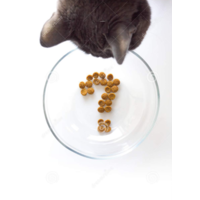
Understanding dry food labels
Author: Bill Wiadrowski
Lets see what the experts say on dry food When you're looking at the ingredient label on dog food, how can you tell if it's quality nutrition? What should I be looking for? Producing a label for pet food is something of an artform. Obviously, the seller is attempting to enhance the positive aspects of the food and the perceived point of difference, whilst down-playing or ignoring the negatives. Attempting to unravel the mystery of what is actually in the bag can be quite difficult, but there are a few tel...
Read more
Key steps to building a healthy future for your puppy
Author: Best for Pets Date Posted: 7 November 2020
Key steps to building a healthy future for your puppy We know that your puppy's health is your priority. Giving your puppy the right care and attention early on will help to ensure they live a long and healthy life. The first few months play a crucial role in your puppy’s long-term growth, development and health. Aside from ...
Read more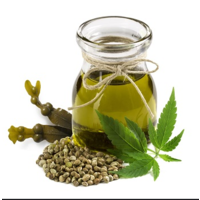
Hemp Seed Oil The NEW Super Food for your Pets
Author: Best For Pets
Why is everyone getting excited about Hemp Seed Oil for their Pets? Until recently Hemp Seed Oil was hardly heard of – now it is everywhere. And with good reason; we have barely scratched the surface of how the therapeutic benefits of Hemp Seed Oil, but the results are certainly proving to be a winner for your pet. It may not solve all your problems, but it is an affordable option for many when comparing some of the expensive treatments that are getting recommended. Certainly, value for money and like most things it can take a few weeks to start see...
Read more
Dealing with Allergies
Author: Best for Pets Date Posted: 5 May 2020
Improving your Dogs Health So many discussions around remedies for dogs with allergies is extremely confusing for many dog owners. It can be really disheartening trying to solve your dog’s allergies. Whether your dog’s allergies appear in the form of itchy skin, ears or feet, or digestive problems like chronic diarrhea, allergy symptoms can make life miserable for both your dog and you. An allergy is a state of over-reactivity or hypersensitivity of the immune system to a particular substance called an allergen . Most allergens are proteins from plants, insects, animals, or foods. Examp...
Read more
DCM - Dilated Cardiomyothpy some things you need to know
Author: Best for Pets Date Posted: 12 July 2019
Dilated Cardiomyopathy (DCM) With so much news an around DCM and what you feed your dogs lets have a look at what we know. First of all there have been approx 560 cases in USA diagnosed since 2014. 7 cases were reported between 2014 and 2017 and was not until the the Food and Drug Administration(FDA) in the USA was made aware by a group of veterinary cardiologist in the North West there was some concerns based on the following two factors: 1) not known breeds were being diagnosed DCM 2) most had been eating grain-free diets prior to diagnosis The FDA released its ...
Read more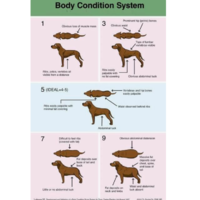
Keeping your dogs weight healthy through the winter months
Author: Best for Pets Date Posted: 26 May 2019
Keeping your dog health y through the winter months When it comes to the seasons changing, we all know that humans tend to pack on a little extra weight over the winter months. A lack of exercise and the ability to go outdoors makes it easy for us humans to get off track. But when it comes to dogs, their bodies are actually programmed to help them survive in cooler conditions. A lot of this is instinct, and we can’t do much about it. The one thing you can do is to adjust your dog’s diet. Let’s take a look at some of the reasons why your dog’s diet may need to change this winter season How Does Colder Temperatures Affect Wei...
Read more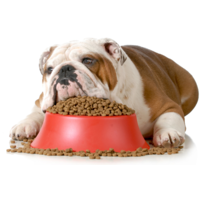
Some facts about dry food
Author: Lisa Caines Date Posted: 16 September 2018
Buying premium dry food does matter Your dog depends completely on you for health and happiness, so it is important that you understand your dog's dietary requirements. As a good dog owner, you will have to consider what type of dog food is the best option for your furry companion. Dry dog food provides a very cost-effective way to provide your dog with all the nutrients and vitamins needed for its good health and long life. Although many dog owners have moved away f...
Read more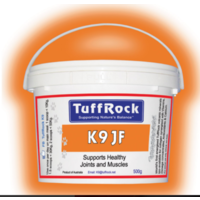
Find out the truth about Tuff Rock K9 Joint Formula
Author: Lisa Caines
What is the truth about Tuff Rock K9 Joint Formula? It works and works well, having bought and sold many products for dogs who have soreness of various descriptions over the years I can not go past this product. I have had customers where senior dogs who were struggling with getting up, middle aged dogs who showed signs of soreness after certain activities and young dogs in their prime all show significant long term improvement after using Tuff Rock K9 JF. What is even better is that it is holistic product with no hidden nasties in it so it cant be a bad...
Read more
Choosing the right treats for your dog
Surely there is no such person as a dog owner who never gives his or her dog a treat. We all like to see our dog’s tail wag, and his face light up with attentive anticipation, right? But how do you know that the treats you give him are healthy? It’s actually pretty simple. As with every food you buy (for yourself or your dog), it’s all about the ingredients. If you do not already read the label of every food item you consider buying, get in the habit! Most of the information you need to know in order to determine the product’s quality is legally required to appear on the label. Things to look for Australian Made – t...
Read more
Three reasons your dog might be missing something in their diet
3 signs that your dog might be missing out on something in their diet Eating a lot of dirt or grass, dogs when missing something they will generally crave for it and as they do not have the opportunity to be selective in supplements to support any deficiencies, they will then look for these nutrients from either dirt or grass. Coat condition becoming dull even though they may be on a balanced diet can be a good indicator that there is still something missing from their diet. Their coat is a reflection from the inside out and how everything is travelling so any changes in coat condition should be investigated If you feel your dog is a bit lethargic f...
Read more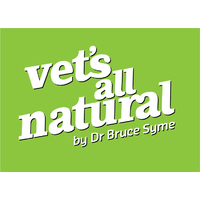
Feeding Raw Bones for Cats and Dogs
Author: Dr Bruce Syme
Feeding Raw Bones to Dogs and Cats Background Eating raw bones is as completely natural as eating fresh meat for dogs and cats. They come hand in hand, in the wild. Both dogs and cats are natural hunters, cats always eating their food fresh, and dogs happy to eat fresh, or decaying. Either way, catching and eating prey has always involved the consumption of bones. Feeding bones to domestic dogs has been a time honoured tradition, and is still practiced by knowledgeable dog breeders and pet owners. The feeding of bones to cats has had less emphasis in the past, as...
Read more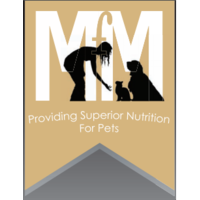
Bindi's Story
Author: Meals for Mutts
Bindi is one of many dogs we are currently helping, but she is also one of the more severe cases w...
Read more




